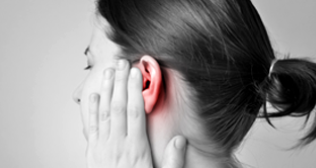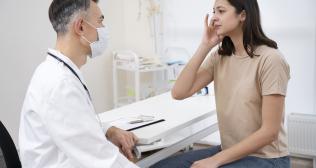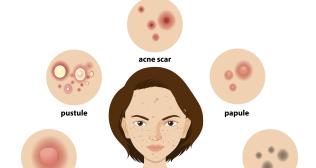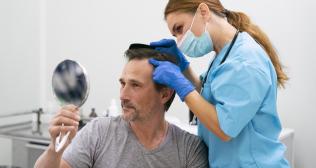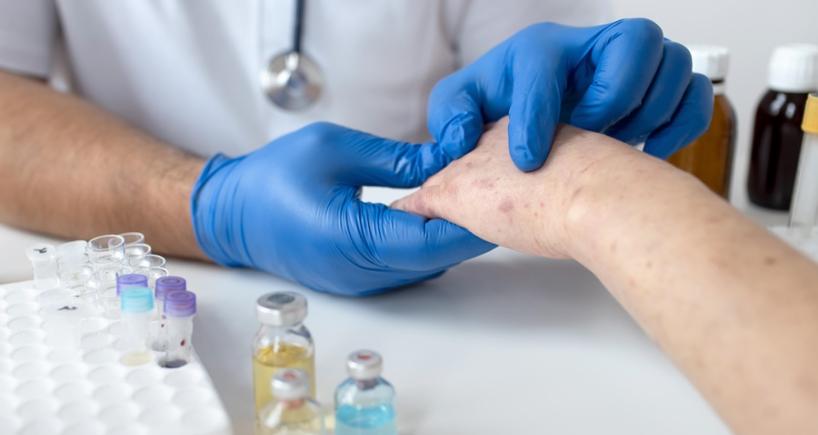
Overview of Skin Allergy: Symptoms, Diagnosis, and Treatment
Introduction
Various factors, including immune system disorders, certain medicines, and infections, can cause irritated skin. When the response of your immune system to an allergen induces skin irritation, it is known as skin allergy.
Skin allergies tend to impact an individual’s quality of life. When it comes to chronic urticaria or hives, the wheels don’t fade for weeks or, at certain times, months or even years. Because these hives can be scratchy and swollen, individuals can’t concentrate on much else because they are always preoccupied. It often leads to annoyance and irritability. Hives can impact confidence, sleep schedule, work, and almost every other aspect of life. Although not dangerous, contagious, or hereditary, they affect an individual’s mental and emotional well-being. Let’s take a look at different types of skin allergies.
Atopic Dermatitis (AD; Eczema)
Atopic dermatitis is a long-lasting disease that causes inflammation (part of the body’s defense mechanism), redness, and skin irritation.
Symptoms
The most prevalent symptom of atopic dermatitis is itching, which can be severe. Other predominant symptoms are:
- Red and dry skin patches
- Rashes that may seep out clear fluid or bleed when scratched
- Thickening and hardening of the skin
The symptoms can spread to more than one area of the body simultaneously and show up in the exact locations or new places. The appearance and location of rashes differ depending on age; however, they can appear anywhere on the body.
Diagnosis
- Noting down medical history
- Examination of skin and the rash
- Performing laboratory tests, such as:
- Blood tests to analyze other causes of the rash.
- Skin biopsy of the rash or lesion
Treatment
Treatments usually comprise a combination of therapies and can include:
Medications
To treat atopic dermatitis, medical professionals might prescribe the following medications based on disease severity and patient’s age:
- Moisturizing and topical creams
- Corticosteroid creams and ointments
- Pills that decrease the abnormal immune response
Skincare
Keeping the skin hydrated by applying moisturizers as soon as possible after bathing to hold the water in the skin is significant when treating atopic dermatitis. In some cases, healthcare professionals may advise the following skin care for atopic dermatitis:
- A diluted bleach bath two times a week to treat atopic dermatitis
- Wet wrap therapy to enhance skin moisture levels in case of persistent allergy
Phototherapy
Ultraviolet A or B light waves can be employed to treat the symptoms of a skin allergy.
Allergic Contact Dermatitis
Allergic contact dermatitis refers to a type of skin allergy that develops when the skin comes in contact with an allergy-causing substance, leading to irritation or inflammation.
Symptoms
Allergic contact dermatitis is mainly confined to the site where the allergen is ingested but might spread outside the contact area.
- The affected skin might become itchy, red, swollen, dry, and uneven.
Diagnosis
The diagnostic techniques include:
- Potassium hydroxide preparation and fungal culture
- Patch testing
Treatment
The exact treatment for allergic contact dermatitis involves recognizing and removing any potent causal agents. If treatment is commenced without determining the precise cause, the patient might move on to develop chronic or recurrent dermatitis.
The following treatment approaches are employed:
- Corticosteroids
- Phototherapy
- Immunosuppressants
- Phototherapy (light therapy)
- Omalizumab
Urticaria (Hives)
Hives, or urticaria, are raised, usually itchy, red bumps (or welts) on the skin surface. They can be an allergic response to food or medicine.
Symptoms
- Itchy, red and/or white, raised bumps of varying sizes can show up anywhere on the body.
- Chronic urticaria can persist for longer than six weeks while acute urticaria persist for up to six weeks. Chronic hives might last for several months or even years.
Diagnosis
During diagnosis, a healthcare professional will enquire about your medical history. They may also perform one or more of the following medical tests:
- Blood work (to eliminate an illness or infection)
- Allergy testing on skin
- Skin biopsy
Treatment
A treatment plan will be crafted to meet the patient’s requirements and might comprise one or more of the following:
- Antihistamines
- Soothing anti-itch cream
- Epi-pen/Auto-injector
- Corticosteroid
Angioedema
Angioedema refers to the swelling of the deeper layers of the skin, induced by a build-up of fluid.
Symptoms
- Swelling without itch often appears on the face surrounding the eyes, cheeks, or lips.
- This deeper layer of swelling can also show up on limbs, genitals, or inside the bowels or throat.
- In acute urticaria, the welts become invisible within minutes to a few weeks. Chronic hives persist for months or even years.
Diagnosis
- Examination of the affected skin
- A skin prick test – The patient’s skin is pricked with a minute amount of the suspected allergen to check for a reaction
- A blood test - The blood sample is tested to assess whether the immune system reacts to a suspected allergen
Treatment
Medications used to treat angioedema comprise:
- Antihistamines
- Inhaler medications that aid in opening the airways
- Epinephrine shots (individuals with a history of severe symptoms can carry these along with them)
- Anti-inflammatory medications (corticosteroids)
Did You Know – Silent Culprit Behind Skin Allergy?
Pollutants like PM2.5 and VOCs can induce an inflammatory response in the skin. Inflammation is a predominant factor in several skin conditions, such as redness, itching, and swelling. Conditions like eczema and dermatitis might worsen with long-term exposure to polluted air, leading to discomfort and irritation of the skin.
Pearls of Wisdom…
When experiencing skin allergy symptoms, immediately contact an allergist or immunologist for a precise diagnosis, an effective treatment plan, and educational information that helps manage the disease and feel better.
Popular Searches
Hospitals: Cancer Hospital in Delhi | Best Heart Hospital in Delhi | Hospital in Amritsar | Hospital in Ludhiana | Hospitals in Mohali | Hospital in Faridabad | Hospitals in Gurgaon | Best Hospital in Jaipur | Hospitals in Greater Noida | Hospitals in Noida | Best Kidney Hospital in Kolkata | Best Hospital in Kolkata | Hospitals in Rajajinagar Bangalore | Hospitals in Richmond Road Bangalore | Hospitals in Nagarbhavi Bangalore | Hospital in Kalyan West | Hospitals in Mulund |
Doctors: Dr. Rana Patir | Dr. Rajesh Benny | Dr. Rahul Bhargava | Dr. Jayant Arora | Dr. Anoop Misra | Dr. Manu Tiwari | Dr. Praveer Agarwal | Dr. Arup Ratan Dutta | Dr. Meenakshi Ahuja | Dr. Anoop Jhurani | Dr. Shivaji Basu | Dr. Subhash Jangid | Dr. Atul Mathur | Dr. Gurinder Bedi | Dr. Monika Wadhawan | Dr. Debasis Datta | Dr. Shrinivas Narayan | Dr. Praveen Gupta | Dr. Nitin Jha | Dr. Raghu Nagaraj
Specialities: Heart Lung Transplant | Orthopedic |








